As a future teacher, I think teaching this text would be difficult. I think some of the most challenging aspects would be helping the students take this book seriously, even though it is an older novel and they will probably find some of the more detailed scenes to be silly. However, I do feel that this novel is important to teach because of the points Judy Blume was trying to make and the ways she contradicted herself in the novel.
As Trites notes on page 93, Blume wrote the novel for her daughter when she asked Judy if she "could write about two nice kids who fall in love, do it, and nothing terrible happens to them.... [Blume's daughter] had read a number of books that year that linked sex with punishment. Trites also points out, and I agree, that Blume is not really able to divorce the idea of sex from the idea of punishment. She does inflict punishment on the characteres: As a result of Sybil being overweight, she feels the need to have sex frequently to feel beautiful. She then becomes pregnant and experiences physical pain in childbirth but also emotional pain when she gives up her baby. When Erica and Artie try to have sex and Artie cannot perform, he tries to kill himself (though whether this is related to his inability to have sex with Erica or the confirmation he is gay, we cannot be sure.) His attempted suicide is devastating to Erica and their friends. Also, I attibute Kath and Michael's emotional attachment to their physical relationship, so their breakup is especially painful to both of them.
What is essential when considering how to teach this book to students is realizing that it cannot be used to teach students that sex is wrong or right. It should not be used to preach to a class full of students. Instead we can examine character motives for certain events. For example, I thought it was interesting that Kath kissed Theo after learning that her grandfather had passed away. She had managed to be faithful to Michael throughout the summer, but a devastating life event pushed her over the edge. This passage and others could serve as a tool for helping students understand the psychological effects of life on our desires and impulses.
What Do You Mean No More Books?!?!
14 years ago

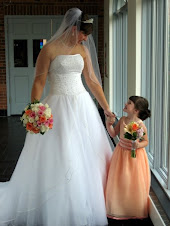
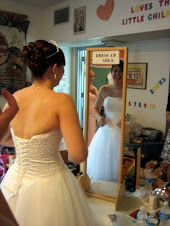
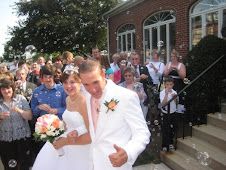


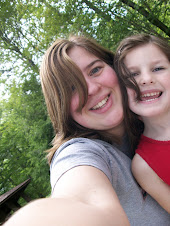
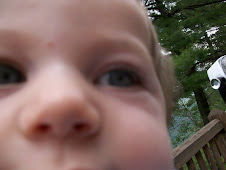
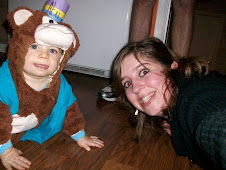





Your point about not using this book to teach whether sex is wrong or right is right on, I believe. I think that the point is to teach it as information. Give students the right (the power) to choose, once they have all of the facts about sex. Don't just show it as pleasurable, and don't just show it as negative. Knowledge is power, and if students are given all of the information and are able to make their own choices, they will be more likely to make the best choice for them, rather than basing it on whether their parents or teachers or whoever think it is okay or not. I liked how Kath's grandparents and parents were neither for or against the idea of her having sex with Michael, but were instead urging her to take responsibility and be ready before she made any decisions. They were informing, without passing any judgment.
ReplyDeleteI agree that this book would be tough to teach. Along with wondering how the kids handle the book, we would also have to worry about what parents handle the book. It is a touchy situation, but I do think it is important in schools. As you said, it gives a great impression of how major life events can effect the psyche of someone.
ReplyDeleteI also think that it is an important novel to teach, because Blume doesn't just talk about sex. She goes into detail about everything that is involved in sex and the consequences that go with it. Chances are, most high school students will have heard about most of what goes on in the book anyway. This just seems to reinforce what they need to know about sex.
I can tell you that parents would not handle the teaching of this book well at all...especially in some of the more conservative districts in this area. I have a student this year who is in a strongly religious family and isn't allowed to be taught different religions in history class or be in the room if a story deals with phantoms or myths. That's just an example, but can you imagine the outcry there would be from parents who don't believe even saying the word "sex" is appropriate? The closest I think we can get to teaching about sex in school is to teach it in health class...and even that's heavily monitored.
ReplyDeleteI am not sure that I see how childbirth and adoption are linked to punishment. Especially in this novel. If anything, Sybil takes the situation incredibly casually and while I imagine in my own mind that these things may have affected her psychologically after the fact, Blume doesn't allude to this. Childbirth and Adoption are truly realistic things that some teenagers have to deal with. It is a real life possible outcome for people who have sex. Isn't "punishment" something imposed on people to restrict their actions? If child birth (and its pain) is a natural effect of having sex, is it really punishment?
ReplyDeleteI really like your statement that there are parts of the book that would make good topics for discussion (Katherine's moment with Theo, etc.) Your post made me realize that there are definitely things in here worth teaching, so thanks!
I agree---she does take it casually! But if you think about childbirth from a Christian standpoint (or if you look at the Bible as myth, whatever... just look at Genesis): God basically says that as punishment for Eve's sin, she will experience great pain in child-bearing. So I think it is a form of punishment in its original state, and we in modern times have really glamorized it as this beautiful thing that brings new life... but think also of how many women die around the world from childbirth each year! Also, as a teenager in high school, getting pregnant is a sort of punishment. There are lots of rumors that circulate and it is not a good situation. There is suffering involved.
ReplyDelete(I will say that I believe these things wholeheartedly as they appear in the context of the book, but when it comes down to it, if I have kids I would like to imagine that childbirth is not a punishment. It's all about perspective.)